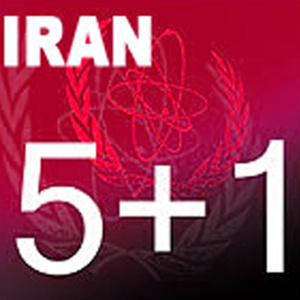Insistence and Threat; Controversies over Iran's Nuclear Program to Continue
Controversies over Iran's nuclear program will not cease until the start of direct negotiations over the new package of incentives

While Iranians keep insisting on the peaceful nature of their nuclear program –which is confirmed by some foreign resources- the wave of threats and sanctions by Western countries seems to have no stop. However, despite consensus among Western countries over restricting Iran's nuclear activities, there are differences on whether sanctions and threats have been fruitful or not.
Besides these differences, the NIE report that Iran has abandoned its attempts for nuclear weapon production since 2003 brought a wave of doubts over the real potential threat of Iran's nuclear program. The report also created a gap among those who supported restricting Iran's nuclear program inside the Western countries –especially the American society.
Recently Donald Kerr, Deputy Director of National Intelligence has said that U.S. intelligence has no plans to revise an estimate of Iran's nuclear program. However, following ElBaradei's latest report, American officials, who are more persistent than their European partners in putting Iran under pressure to stop uranium enrichment and change the course of its nuclear activities, urged Iran's transparency in answering IAEA's questions.
Referring to IAEA's recent report, Condi Rice, attending an international conference on Iraq in Sweden said: "The Iranians have a lot of explaining to do about the IAEA report, which essentially sees them as not cooperating on some very important, dark questions that the international community has about their programs".
Despite concerns they have expressed over Iran's nuclear program after ElBaradei's report, the European countries view pressure increase on Iran doubtfully. One day after IAEA released its report, French and German foreign ministers called for further notice of the danger Iran's avoidance to provide adequate information on its nuclear program creates, but it seems European countries are not sure about the efficiency of sanctions and prioritize economic interests.
Meanwhile, Iran has not given West the green light regarding their new package of incentives accompanied by a request for halting uranium enrichment and it is not clear when Javier Solana and 5+1 representatives will visit Tehran.
On Sunday Deutsche Welle reported that IAEA report detailing Iran's nuclear program and its answers to alleged studies will be at the centre of the UN nuclear organization's Board of Governors meeting starting on Monday. One day before this news, Ali Asghar Soltanieh, Iran's permanent envoy to UN nuclear watchdog, had said that Americans prevented delivering Iran the alleged studies' documents and this had created serious problems in Iran-IAEA negotiations. Soltanieh also added that Iran had proved the allegations and documents provided by the United States were fake but this had not been mentioned completely in IAEA report.
While Iran argues that it's having constructive talks with IAEA and its nuclear program has a peaceful nature, western countries continue imposing sanctions and threatening Iran. The game will go on until direct negotiations between both sides on the package of incentives start.

